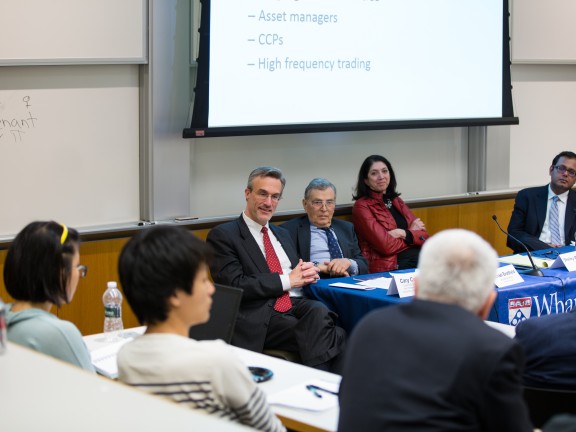Letter from the President

It has been a busy spring and summer at the Volcker Alliance. We just released a report on Truth and Integrity in State Budgeting: Lessons from Three States. Honesty in laying out budget choices is paramount to the integrity of democratic decision-making, but many states still balance their budgets with practices that obscure rather than clarify spending choices. In this initial report, the Volcker Alliance examines the budgeting practices of California, New Jersey and Virginia in detail, “shining a spotlight on opaque and confusing practices” and “identifying more appropriate approaches” to lay the groundwork for further research to bring more responsible budgeting and financial reporting practices in all 50 states.
In April, the Alliance released our report, Reshaping the Financial Regulatory System: Long Delayed, Now Crucial. This study spotlights serious structural problems in our financial regulatory system causing fragmentation, overlap, and glaring gaps that contribute to systemic risk and increase vulnerability to future financial crises. While these issues are neither new nor unacknowledged, and while the Dodd Frank Act strengthened the scope of regulation, it left many of the structural deficiencies that contributed to the financial crisis unaddressed. As Alliance Board Chairman Paul Volcker states in the report’s preface, “…Passivity in making necessary changes cannot reasonably be accepted. The recommendations offered in this report lay out a strong framework for reform.”
On other fronts, The Volcker Alliance joined with the Federal Reserve Bank of New York and George Mason University’s State and Local Government Leadership Center to bring together mayors, academics, financial and legal professionals—including federal bankruptcy judges from Detroit, Stockton, California, and Jefferson County, Alabama—for the first of what we expect to be a series of activities to examine distressed municipalities and the role states can play in monitoring and prevention. This event considered alternatives to filing under Chapter 9 of the U.S. Bankruptcy Code and how to avoid fiscal stress in the first place. Among preventive measures are making budgets more transparent and having officials better communicate priorities to states, counties, and cities.
In addition, the Alliance initiated an exploratory project with Results for America, Bellwether Education Partners, and the National Head Start Association to increase the impact of federal grants by improving performance measurement and management practices. The goal of this effort is to develop performance measures that help not just researchers and program managers but also front-line workers find ways to improve outcomes, return on spending, and operational quality – promising lessons for all federal grant programs.
We have also been talking with academics, students, and practitioners about ways to improve government performance, with special attention to working with public policy and administration schools to advance that objective. At the Public Management Research Conference, which convenes many of the world’s leading public management researchers, we organized two sessions to brainstorm better ways to translate research to practitioners and integrate measured trials more routinely and seamlessly into program operations. At the University of Michigan’s Ford School of Public Policy, I invited students to become entrepreneurs in government, and at a meeting of cybersecurity leaders, urged caution when using metrics to assess provider performance, offering suggestions relevant to many policy areas. Bill Glasgall, director of our state and local program, spoke about truth and integrity in budgeting in a keynote address to the annual Public Finance Conference at the University of Arizona School of Public Affairs, and headed a panel discussion on municipal bankruptcy and fiscal stress at a symposium at Boston University School of Law. In March, the American Society for Public Administration (ASPA) recognized our outreach work when it selected The Alliance as recipient of the 2015 Award for Public Integrity.
Let me also mention a few internal transitions of note. We welcome Amy Smitherman as our new director for Finance and Human Resources. Amy comes to us with extensive experience in seniorlevel finance and administrative roles for nonprofit organizations in New York City. Also, we recently moved from our borrowed space in Rockefeller Center into new offices at 560 Lexington Ave. (Thank you, Ripplewood Advisors LLC, for your generosity hosting us our first year.) The move represents an exciting new stage of our growth as an organization.
On a more personal note, I am sad to say that this will be the last letter I write as President of the Alliance. I am moving to Massachusetts to be with my husband as he undergoes intensive medical treatment. While his prospects for a full recovery are excellent, I found myself torn between giving him and the Volcker Alliance the level of attention both need. I will continue to serve this important organization from Massachusetts as a Senior Advisor, and Alliance Board Chairman Paul Volcker and Board Treasurer Anthony Dowd will oversee the work of the Alliance as the Board undertakes a search for a new Executive Director.
